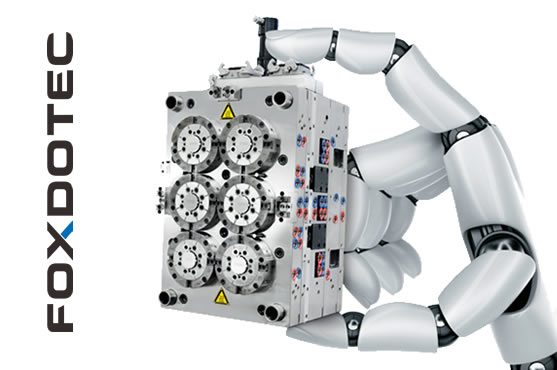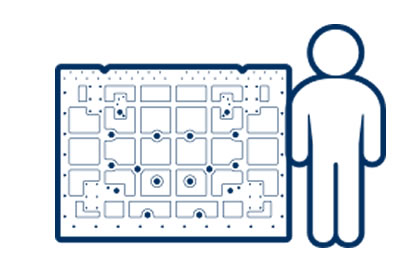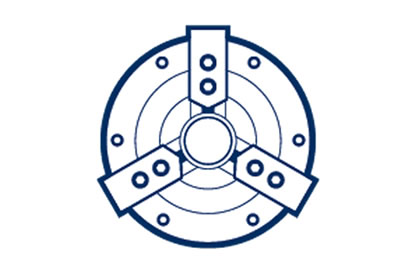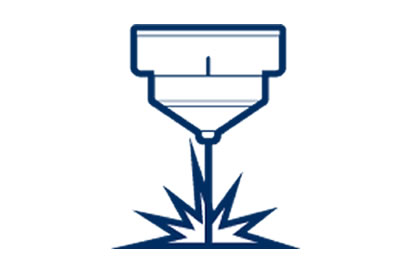CNC Machining Services
Unlock precision and efficiency with our CNC Machining Services! Equipped with cutting-edge technology and skilled craftsmanship, we deliver custom machining solutions tailored to your exact specifications. Say goodbye to limitations and hello to unparalleled quality. Elevate your projects with our comprehensive CNC Machining Services. Experience precision redefined—partner with us today!
CNC Machining
What is CNC Machining?
CNC machining, which stands for Computer Numerical Control machining, is a manufacturing process that utilizes computer-controlled machines to remove material from a workpiece. It is a highly automated and precise method of manufacturing that is widely used in various industries.
The CNC machining process typically involves the following steps:
- Design: Create a digital design or model of the part to be manufactured using computer-aided design (CAD) software.
- Programming: Convert the design into a set of instructions (G-code) that the CNC machine can understand. This involves specifying tool paths, cutting parameters, and other machining parameters.
- Setup: Prepare the CNC machine for machining by securing the workpiece on the machine bed and installing the appropriate cutting tools.
- Machining: Execute the machining program on the CNC machine, which controls the movement of the cutting tools relative to the workpiece. The machine removes material from the workpiece to create the desired shape and features.
- Finishing: After the machining process is complete, the part may undergo additional finishing operations such as deburring, polishing, or surface treatment to achieve the desired surface finish and dimensional accuracy.
- Quality Control: Inspect the finished parts to ensure they meet the specified tolerances and quality standards. This may involve dimensional measurement, visual inspection, and functional testing.
CNC machining offers several advantages, including high precision, repeatability, and efficiency. It can produce complex parts with tight tolerances and intricate geometries, making it suitable for a wide range of applications across various industries.
Precision Injection Mold


How to improve the quality of CNC machining?
Improve CNC machining process
To enhance the quality of CNC machining processes, consider the following strategies:
- Thorough Planning: Start with thorough planning and design to ensure that the machining process is well-defined and optimized for the specific part and material being machined.
- Material Selection: Choose high-quality materials with suitable properties for the intended application. Ensure that the material is free from defects and impurities that could affect machining quality.
- Tool Selection and Maintenance: Use high-quality cutting tools appropriate for the material being machined. Maintain tools properly by sharpening or replacing them regularly to ensure optimal performance and surface finish.
- Optimize Cutting Parameters: Adjust cutting parameters such as cutting speed, feed rate, and depth of cut to achieve optimal machining results. Experiment with different parameters to find the best combination for the desired outcome.
- Minimize Vibration: Minimize vibration during machining by securing workpieces properly, using stable cutting setups, and selecting appropriate machining strategies. Excessive vibration can lead to poor surface finish and dimensional accuracy.
- Implement Quality Control Measures: Implement rigorous quality control measures throughout the machining process, including in-process inspections, dimensional measurement, and surface finish analysis. Identify and address any deviations from the desired specifications promptly.
- Utilize Advanced Technologies: Take advantage of advanced technologies such as high-speed machining, multi-axis machining, and toolpath optimization software to improve efficiency and precision in CNC machining operations.
- Continuous Improvement: Continuously evaluate and improve machining processes based on feedback and lessons learned. Encourage collaboration and knowledge sharing among team members to identify areas for improvement and implement best practices.
By implementing these strategies and focusing on continuous improvement, you can enhance the quality of CNC machining processes and achieve better results in terms of surface finish, dimensional accuracy, and overall part quality.

CNC Machining
CNC machining is a computer-controlled manufacturing process that utilizes pre-programmed software to dictate the movement of machinery and tools. This technology enables the precise cutting, drilling, and shaping of materials such as metal, plastic, and wood to create intricate components with high accuracy and consistency.
Read More
Precision Grinding
Precision grinding is a manufacturing process that involves the removal of material using abrasives to achieve extremely tight tolerances and surface finishes. used to produce components with intricate shapes, precise dimensions, and smooth surfaces. Precision grinding techniques include cylindrical grinding, surface grinding, and internal grinding.
Read More
Electrical Discharge Machining
Electrical Discharge Machining (EDM) is a non-traditional machining process that utilizes electrical discharges to erode material from a workpiece. It is particularly useful for machining complex shapes and hardened materials that are difficult to machine with conventional methods. EDM can achieve high precision and surface quality.
Read MorePrecision machining and manufacturing involve the use of advanced techniques and equipment to produce highly accurate and intricate components with tight tolerances. It requires expertise in machining processes, material properties, and quality control methods to ensure the production of high-quality parts for various industries.
Key Aspects of Understanding Injection Molds
- Design Principles: Understand the principles of injection mold design, including considerations for part geometry, material flow, cooling, and ejection.
- Materials and Construction: Explore the materials commonly used in injection mold construction, such as tool steel, aluminum, and beryllium copper.
- Manufacturing Techniques: Gain insights into the manufacturing processes used to produce injection molds, including machining, EDM, and CNC milling.
- Mold Maintenance and Repair: Learn about the importance of mold maintenance and preventive maintenance schedules to ensure the longevity and performance of injection molds.
- Tooling Standards and Regulations: Familiarize yourself with industry standards and regulations related to injection mold design and manufacturing.
- Advanced Technologies: Stay informed about advancements in injection mold technology, such as rapid prototyping, additive manufacturing (3D printing), and simulation software.
- Cost Considerations: Gain insights into the cost factors associated with injection mold production and learn about strategies for cost optimization.
- Case Studies and Best Practices: Study real-world examples of successful injection mold projects across various industries.
Key Aspects of Understanding Precision Machining
- Processes and Techniques: Explore the various precision machining processes and techniques, including turning, milling, drilling, grinding, electrical discharge machining (EDM), and others.
- Materials: Learn about the different types of materials commonly machined using precision techniques, such as metals (e.g., aluminum, steel, titanium), plastics, ceramics, and composites.
- Tooling and Equipment: Familiarize yourself with the cutting tools, machine tools, and equipment used in precision machining.
- Tolerances and Metrology: Gain insights into tolerance requirements and metrology techniques used to measure and verify part dimensions and surface characteristics.
- Design for Manufacturing (DFM): Explore principles of design for manufacturability (DFM) and how they apply to precision machining.
- Quality Assurance: Understand quality control measures and inspection techniques used in precision machining.
- Applications and Industries: Explore the diverse applications of precision machining across industries such as aerospace, automotive, medical, electronics, and tooling.
- Advanced Technologies: Stay informed about advancements in precision machining technology, including automation, robotics, additive manufacturing (3D printing), and advanced materials.
Precision machining and mold technical documents
Other Downloads
- Technical Parameter 3.9 MB
- Technical Drawing 1.8 MB
